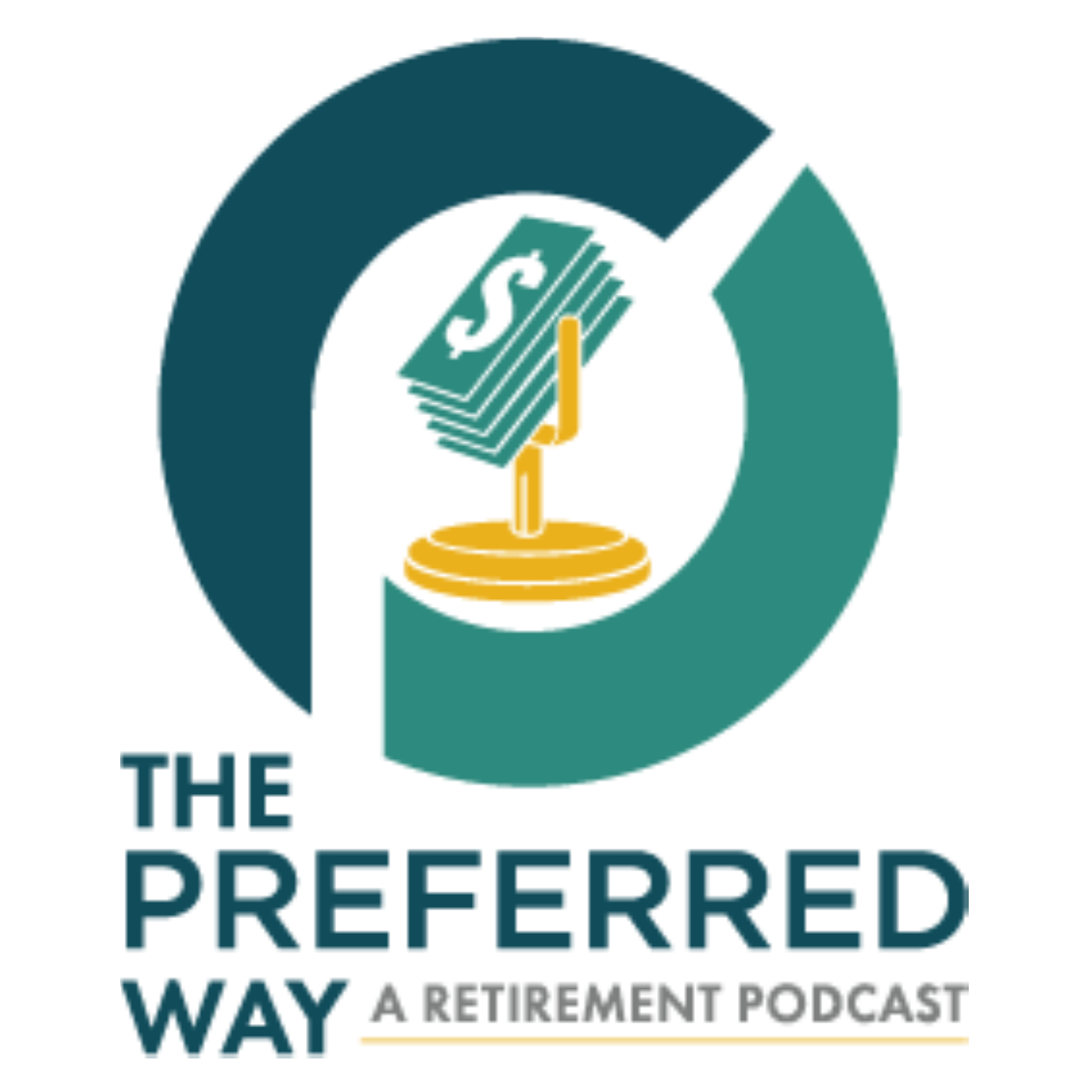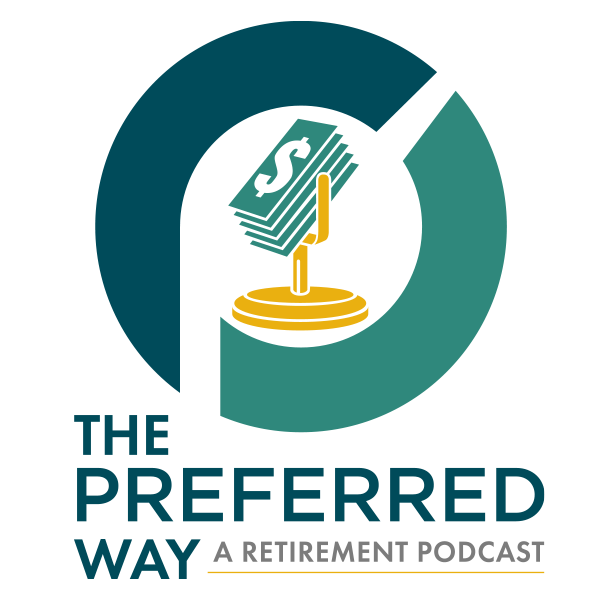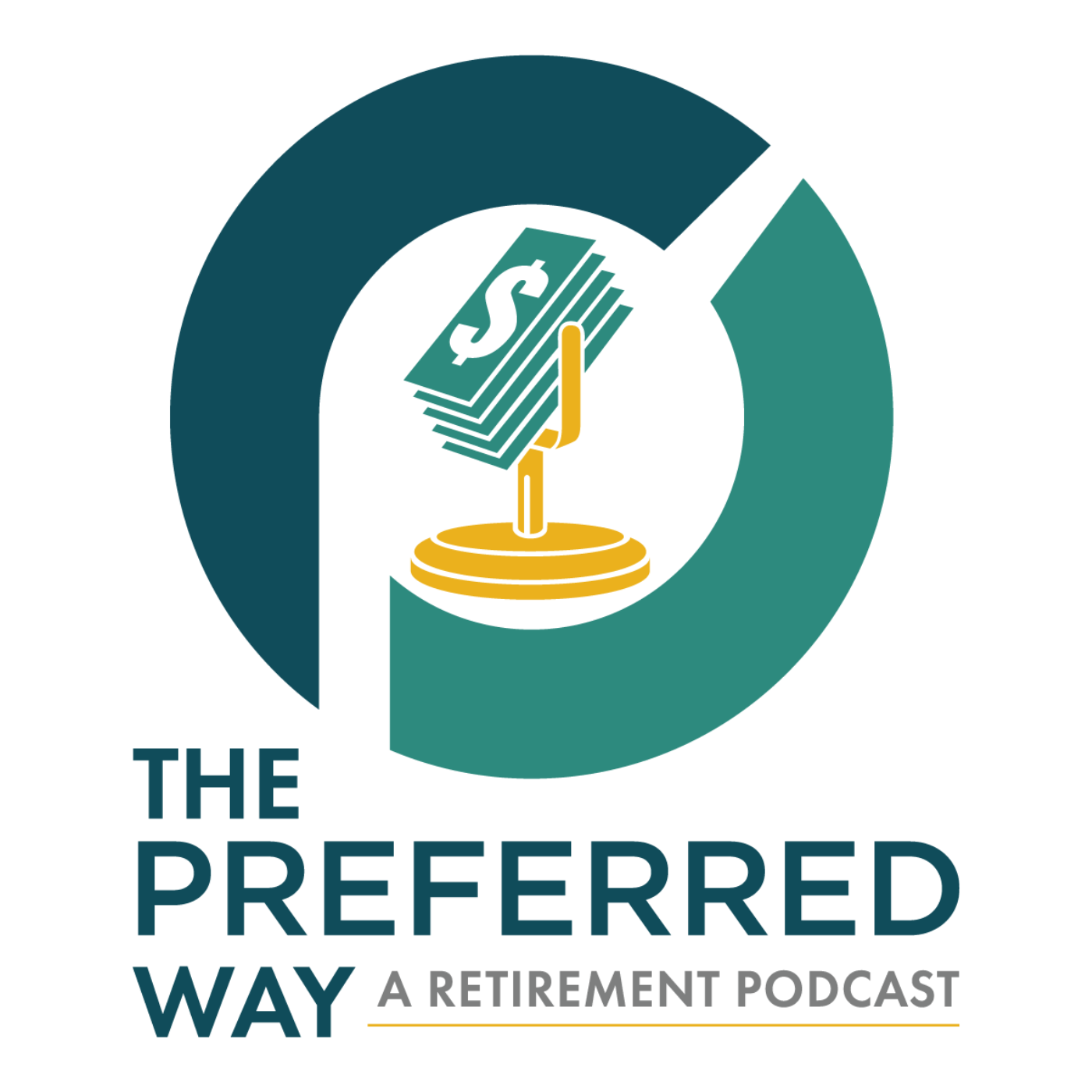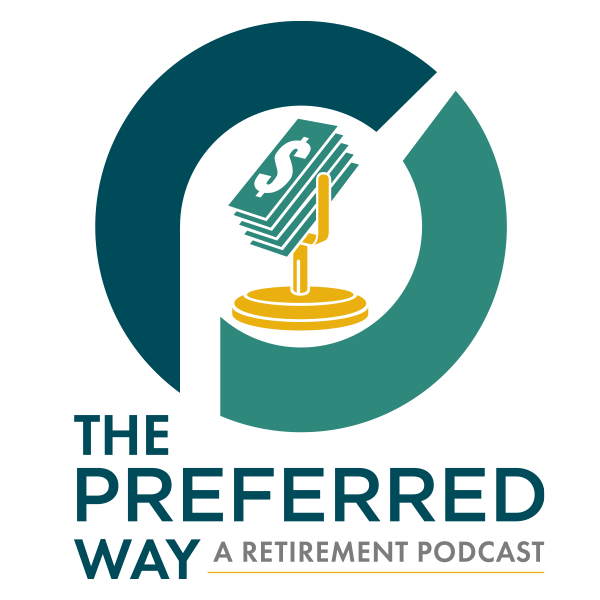[00:00:01] Speaker A: You're listening to PTC point of view, brought to you by preferred trust Company, the preferred custodian for all alternative investments. We're here to provide retirement savers like you with the tools you need to succeed. Need a confidence boost when it comes to investing outside of the stock market? Do you want the power to build a tax sheltered nest egg that will last through your golden years? You've come to the right place. Turn up your speakers and turn off cruise control, because we're taking you on the alternate route to investing with your IRA.
[00:00:39] Speaker B: Welcome, everybody, to another episode on PTC Point of View. My name is Izzy Irizari. I'm the director of marketing here at PTC. And today we have Chris Trembley, director of operations, with us. On today's episode, we're going to talk everything and all things about RMD's. For those that don't know what an RMD is, that's the required minimum distribution you must take from your IRA. So, Chris, let's go ahead and jump right into it. The first question we have here is what types of retirement plans are subject to RMD's?
[00:01:11] Speaker C: All right, well, all four hundred one s, four hundred three b's, 457 plans and iras, specifically traditional, simple, and sep iras. Now, of course, Roth iras are a little bit different. Cause they're different from a taxation standpoint. So they do not have required minimum distributions for our clients. Specifically, if you hold a traditional ASEP or a simple IRA with us and you've reached age 72, you need to start taking required minimum distributions.
[00:01:40] Speaker B: So you said something interesting. So if you have a Roth, you don't have to take RMD's?
[00:01:44] Speaker C: That's correct. That is correct. So you just have to be concerned if you have a traditional, simple or sep for tax purposes, they're all considered in the same. For IR's purposes and taxation, those are considered the same as far as RMD's go.
[00:01:57] Speaker B: So when's the first time that somebody has to take an RMD?
[00:02:00] Speaker C: So if you turn age 72 in the year of 2022, for example, then your first RMD is going to be required to be taken by April 1 of 2023. That's for the first RMD. Every RMD after that will be by December 31 of that tax year. So you have a little leeway following your first one.
[00:02:19] Speaker B: Has that ever changed, by the way?
[00:02:21] Speaker C: Yes. So, yeah, a couple years ago, it was 70 and a half. So the IR's made some changes. So if you turned anytime after 2019, if you turned once, you turned 72. So it's a little bit different than it was.
[00:02:36] Speaker B: So I know you've been here at preferred trust a good while. Is that something common? Have you seen that before? Have you seen them change that?
[00:02:42] Speaker C: It's not very common. I mean, you know, legislation takes a while to push through, obviously, and so changes in laws and regulations, it doesn't happen overnight. So definitely, you know, it hadn't changed in many, many, many years. That was the standard. So 72 is just something pretty new.
[00:02:59] Speaker B: So how do I find out what I would have to take for my RMD? Like, how do I calculate that?
[00:03:05] Speaker C: All right, so very good question. And we get that a lot from our clients. At the end of every year, the value of your account, cash and assets together. So any investments you have, any cash you have, total, all in of your value is reported to the IR's as of December 31 of every year. So we produce a form called a 5498. That 5498 not only lists the contributions that you make throughout the year, but it lists that value of your account. And that is what we send to the IR's on that form is also your RMD amount. Now, the RMD amount is calculated. The IR's puts together a life expectancy table, basically. So it takes your age into consideration, it takes the value of your IRA into consideration, and it's actual calculation for us. We have software that produces that for your IRA with preferred trust company. Now, of course you could have multiple iras, and so each custodian is going to provide you your RMD amount for that year.
[00:04:05] Speaker B: So if I have one with preferred trust and I have one, let's say, at TD Ameritrade Schwab, wherever I'll get, be getting however many IRA accounts I have, I'll be getting that many forms, right?
[00:04:15] Speaker C: Correct. As long as your account is open on December 31 of any tax year, that custodian is going to provide you form 5498. They're going to file that with the IR's as well. So you've got to take all your five thousand four hundred ninety eight s and you've got to make sure that you have those amounts for the RMD so that you can calculate it. Because the one we give you from preferred trust company is only applicable to the IRA that you have with us. We obviously do not know or we're not aware of your other retirement accounts. So that's up to you to collect all of those. And the best thing we recommend is to go to your CPA or tax specialist, take those forms with you so that if you have multiple RMD's, that you're taking the correct amount all in for that year.
[00:04:56] Speaker B: So that leads into my next question. So if I do have to take RMD's and I do have another account, like I mentioned, like I said, let's say, at Schwab, and I have my account over at preferred trust, am I able to just figure out what my RMD is between the two of those and just take from Schwab?
[00:05:12] Speaker C: Yes, absolutely. So I think the big one of the biggest misconceptions is when you receive your 5498 from preferred trust company and you have your RMD amount on there, that you have to take your RMD from your preferred trust account. But, like, to your point, let's say you also have an account at Charles Schwab. Let's say your account is 100% invested in assets at preferred trust company. You don't have cash available. You don't want to take an in kind distribution. But you do have plenty of cash in your account at Charles Schwab, then, yes, you can take your full RMD amount from that account. That is, per the IR's. That's IR's rules and regulations.
[00:05:47] Speaker B: What's good here, because, like you said, a lot of people do have much of their iras invested, fully invested. They don't have cash. Whereas, depending on what their strategy is with their traditional big box accounts, they do potentially have that cash sitting on the sideline. So if they wanted to, they would be able to take that full RMD from the other account versus the one at preferred trust.
[00:06:08] Speaker C: Correct.
[00:06:09] Speaker B: So what happens if I don't take my RMD by the deadline you had mentioned earlier?
[00:06:14] Speaker C: So the IR's imposes a 50% excise tax.
[00:06:18] Speaker B: Well, what's that?
[00:06:20] Speaker C: What is that?
That's a tax on the amount you would owe. So 50% of whatever amount you owe for your RMD, whatever that dollar amount is, that's the penalty you would be assessed, basically. So it's pretty hefty. That's one of the biggest from the IR's. So, yeah, you definitely want to make sure you're taking your RMD's now. You can take them throughout the year. Right. Let's say that you get your amount at the end of this year. It's not due until the end of next year. You can take your RMD or distribution, small distributions throughout the year, to each of that amount.
[00:06:54] Speaker B: I don't take a lump sum.
[00:06:54] Speaker C: You don't have to take a lump sum. So you can divide it equally. You can take a distribution quarterly. Lots of people are on recurring, what we consider recurring distributions. So they're taking distributions of income or interest, any income dividends they receive, or interest income that they receive out of their IRA. They're actually taking those for distributions monthly a lot of times to live off of. That's considered towards your RMD. So those amounts total out at the end of the year. And then if you've met your RMD, you don't have to worry about taking an additional amount.
[00:07:25] Speaker B: So one thing that can technically affect your RMD is if you are investing in income producing investments, correct?
[00:07:33] Speaker C: Yes.
[00:07:33] Speaker B: Okay.
[00:07:34] Speaker C: Yeah.
[00:07:34] Speaker B: So the next question I have is, am I taxed on my RMD's?
[00:07:38] Speaker C: You are taxed on your RMD's. So basically, you're taxed at your income rate, your income tax rate. And so obviously, that's. That's different for everybody. Again, it's good for you to sit with your CPA or tax specialist so you understand that. I think that's another misconception that we have at preferred trust company by our clients, is that we can somehow provide tax advice. We are not tax experts. We are not life to do that. We will always refer you back to your CPA to get that information. That's who you should be working with every year.
[00:08:09] Speaker B: I now know I am taxed on them. RmD's. What are you guys going to provide, though, to me when I take those distributions?
[00:08:16] Speaker C: So, when you take a distribution, a personal distribution of any cash or assets from your IRA, you receive a 1099 r. Okay. So it calculates the 1099 r is produced after the end of the year and provided to clients in the following January. So any distributions you took for 2022, you'll receive a 1099 r in January of 2023. Again, you only receive a 1099 r if you took distributions from your IRA, meaning you received personal cash funds or assets from that retirement account.
[00:08:50] Speaker B: So, once again, for our listeners, you only receive a 1099 if you take a distribution from that account?
[00:08:55] Speaker C: Yes. I think a lot of times people will call us up and they'll be concerned because they didn't receive a 1099 r. And then when we look at their account and we look at the history of the account, they never took any distribution. So I think that's a misconception on what tax forms they're supposed to be receiving after the end of the year.
[00:09:12] Speaker B: So what happens if, let's say I inherited an IRA? What are the RMD requirements for that?
[00:09:18] Speaker C: So the RMD requirements. Once you inherit an IRA and you put it in your name, you must begin taking those RMD's by December 31 of the year following the death of the account, the original account owner.
[00:09:31] Speaker B: So I have to take RMD's even if I'm not 72, correct?
[00:09:35] Speaker C: That is correct.
[00:09:36] Speaker B: Interesting.
[00:09:36] Speaker C: And it's interesting, in 2019, Congress passed the Secure act. And so basically, it gives IRA owners, you know, if they died anytime after 2019. There are some exceptions. It kind of changed the outlook of how long you can take those distributions from over a lifetime until within ten years. So it's super important, too. I think that's a big thing as well, especially when you have an inherited account, because it's different if you inherit an account from your spouse versus if you inherit it from a sibling or a parent, you really are going to want to get the advice of a tax specialist, go to a CPA, sit with them, and understand tax laws are very complicated and there's a lot of information out there. And like I said, it is different depending on who you inherited it from. And there are some exceptions to those rna, so you'll want to get with a CPA on that.
[00:10:31] Speaker B: Okay. That's very good to know because that's obviously a reason why we have beneficiaries listed on the accounts when they are open. And that is something that definitely can occur.
[00:10:41] Speaker C: Yep. Absolutely.
[00:10:41] Speaker B: So what is the process for RMD's? Can you tell me a little bit more about it?
[00:10:45] Speaker C: Sure. It kind of depends on how your account is held with preferred trust, meaning what investments it has in the account, if it has cash available. So we'll take a couple different scenarios here. If you have cash in your IRA and let's say you have $$10,000 cash in your IRA and your RMD is 2500, all you need to do is fill out a one time distribution form with preferred trust company, and we can send you that $2,500 in cash. Right. So you would receive it into your savings or checking account. It's pretty straightforward. One time distribution form. You mark on the form that it's for your RMD, and we get that processed to you and that's it? Yeah, that's it. You can also send it to charitable organization. That will satisfy the RMD. Cash distributions on an RMD are pretty easy, pretty straightforward. Now, it gets a little bit more complicated if your account is fully invested in something, for example, precious metals, let's say. So if you have an account with, for a trust company and 100% of your retirement dollars are invested in precious metals, silver, gold, platinum, palladium. And you need to take an RMd. What do you do? What are your options? So you have really two options in front of you. You can sell a portion of your precious metals, right? So that cash comes back into your IRA, so that you can then take a cash distribution, or you can take an in kind distribution of your precious metals, meaning that you take possession of all or a portion of those precious metals in order to meet the RMD. We do report, you know, we report cash distributions to the, to the IR's and we also report in kind distributions, meaning you've taken the asset, meaning we've sent you your gold in a box and you've signed for it, and now they're in your possession. You have to store them. They're no longer held in your retirement account. It is a taxable event. And there's how you met your RMD. So you've got those two options. You do have to be kind of careful. Obviously, when you're taking an in kind distribution, there are going to be certain fees associated because obviously there is work that goes behind that between the custodian for your IRA and the depository that's currently holding your metals. We have to pack them, they have to be shipped, they have to be insured. So there's going to be costs to that, and there's also processing fees for preferred trust company to actually process that distribution. And so if you're in the situation where I mentioned earlier, 100% of your dollars are invested in the precious metals, you're going to have to get cash into the account so that you can pay those fees and pay the shipping and handling. Meaning you're probably going to have to sell some of your metals anyway after you've reached a certain age, right. And you have to start taking requirement and distributions, you may not be able to make a contribution to your account.
[00:13:29] Speaker B: Going to be my next question.
[00:13:30] Speaker C: Right. So you have to be careful with that. Again, it's so important that, you know, at every age I think that you have a CPA in your corner. You have someone that helps you with these things, especially when you have a self directed IRA where you're investing in alternative investments. These are obviously different than your publicly traded investments. So you want to have a CPA available to you anyway to make sure you're following all of the IR's rules and regulations when it comes to your retirement account.
[00:13:57] Speaker B: So just to recap, so if I have cash on my account, I can utilize that for my RMD if I don't I have to take an in kind distribution? And your example was if you had precious metals, so let's say you had the gold, silver, any of those, and you take the in kind distribution, you are now going to be taking possession. But it does suffice. The RMD based on the value.
[00:14:17] Speaker C: Absolutely based. And yeah, that's the other thing that you kind of have to worry about. You know, your RMD is a certain amount, and you have to make sure the value, what you're going to get for the value of your metals, that you're taking the right amount of metals out to meet that RMD. Again, I'm going to go back to that CPA aspect of it. Always want to have a tax specialist involved. And then again, the other option is to sell all or a portion of your precious metals to create cash in your account so that you can take that RMD.
[00:14:45] Speaker B: Perfect. Are there any other myths that you want to talk about for RMD's that we may have not covered? I know you did a few.
[00:14:50] Speaker C: We did cover a few. I think the biggest one is that you have to take your RMD from the account. Now, if you only have one retirement account. Yes, let's say you only have one with preferred trust company. Well, that's the only choice then. You have to take your RMD.
Have any other options for where that RMD can be processed through? So, but if you have multiple accounts, you can take it from any qualified retirement account that you have. So I think that's a huge misconception that's out there. So definitely. And then the other one that I heard the other day, actually for the first time, I was speaking with a client and she said to me, well, since it's invested in precious metals and an alternative, I understand that I don't have to take an RMD. That doesn't apply to me, and I hadn't heard that one before. So I guess, you know, clarifying that is important, too. It doesn't matter what your retirement account is invested in. You could be invested in the stock market. You could be invested in real estate, precious metals, any investments, it doesn't matter. As long as you have a qualified retirement account, an IRA, four hundred one k and you reach the age of 72, you have to start taking distributions. So the IR's does not care what your investments are. That holds no bearing on whether or not you have to take an RMD.
[00:16:03] Speaker B: Well, Chris, I really appreciate all the information. I'm sure our listeners do as well. Again, we feel that this topic is very, very important. Many misconceptions, many questions. A lot of people just do not ask or don't know. So we so true. We really hope that this episode was as educational as possible. But if you still have questions, anything related to your account, whether it's with us at preferred trust or at another custodian, as Chris mentioned, always reach out to your CPA or any of your tax professionals to be able to assist you as they know what your strategy is. They know all the accounts that you have together. Again, thanks a lot, Chris, for getting on the show today.
[00:16:41] Speaker C: Absolutely.
[00:16:42] Speaker B: We appreciate everybody listening today.
[00:16:45] Speaker A: Thanks for joining us for another episode of PTC Point of view where retirement savers meet alternative investments. Know someone who's struggling with a retirement strategy? Tell them about our show. Can't wait for the next episode. To learn more, visit our
[email protected], or give us a call at 888992.



